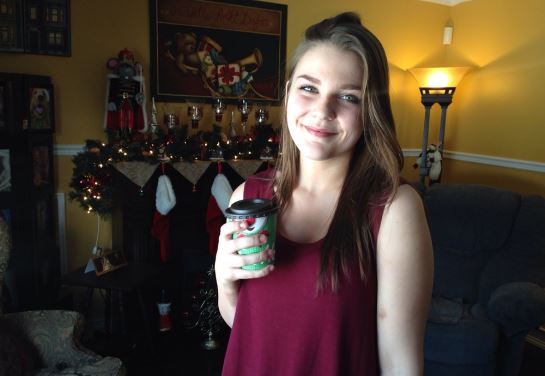Halifax Regional Police (HRP) say an investigation has concluded that Breagh Martell — a woman who alleged she was arrested for her mental health issue — was “legally arrested” and that officers did not use excessive force.

READ MORE: Dartmouth woman alleges Halifax police arrested her for mental health issue
Martell was arrested and issued a ticket for public intoxication in the early morning hours of Dec. 10.
According to a statement from HRP on their Facebook page, officers responded at about 2:50 a.m. to a call about a woman screaming a man’s name on Mic Mac Boulevard. When they arrived, the woman was “lying on the ground, crying and yelling.”
Martell, who has borderline personality disorder, says she was experiencing a panic attack after having lost track of her boyfriend at a bar downtown. When she couldn’t reach anyone she knew, her anxiety escalated.
“He instantly assumed that I was intoxicated because I was unable to answer his questions clearly and concisely,” Martel told Global News Tuesday.
The responding officer said Martell showed signs of intoxication. He offered to drive her home, however he said that on the way she began crying and yelling from the back seat of the patrol car, at which point he determined he couldn’t release her safely. She was then arrested for public intoxication under the Liquor Control Act.
She was taken to HRP headquarters where she was told she would stay until she sobered up.
Martell was not given a breathalyzer test — HRP says a breathalyzer test is administered for arrests under the Criminal Code, but not the Liquor Control Act.
Just after 3:30 a.m., HRP say Martell was put in a single cell after being booked. She was not allowed to make a phone call, which the police say “happens when a person is intoxicated and agitated.”
HRP says Martell did not mention her mental health issue during booking, however they admit a medical questionnaire that should have been filled out wasn’t, which they’re looking into.
At 7:21 a.m., police say Martell was placed in a restraint chair after her “behaviour changed.” They also took away her jacket and pantyhose, which they say she’d taken off.
Martell told Global News Tuesday that she’d wrapped her pantyhose around her neck in an effort to get medical attention.
HRP says a blanket was placed over Martell’s lower body several times, which “slipped off as the woman was banging her knees together.” Therefore, police say, “there were brief increments of about one to three minutes each when the woman’s lower body was exposed.”
HRP says EHS was called at 7:52 a.m. when police determined the needed medical attention. Close to 20 minutes later, EHS arrived and loosened the chair restraints.
Martell was taken to hospital by EHS at 9:08 a.m.
HRP says Martell was attended to by primarily female officers while in custody, and given water, a blanket, a tissue and medical attention. HRP also says one officer did call a member of her family.
“The events of the early morning hours on Saturday were undoubtedly difficult for Ms. Martell, but she was legally arrested and detained and officers acted accordingly in consideration of their primary goal,” HRP said.
“At no time did the officers use excessive force.”
Along with their official account of the incident involving Martell, HRP noted that they’ve received many inquiries about what mental health training officers receive.
HRP says all police and booking officers were given training in 2015 by the Mental Health Mobile Crisis Team — a shared service between HRP, the Nova Scotia Health Authority and the IWK Health Centre — about dealing with people with mental health issues. They add that many officers also get mental health training during their police education.
“We’re confident that officers are equipped to serve people appropriately. Balancing mental health and policing can sometimes be very complex and with this in mind, we encourage officers to participate in supplemental mental health training, including critical incident training, crisis intervention, and suicide and intervention training,” HRP says.




Comments